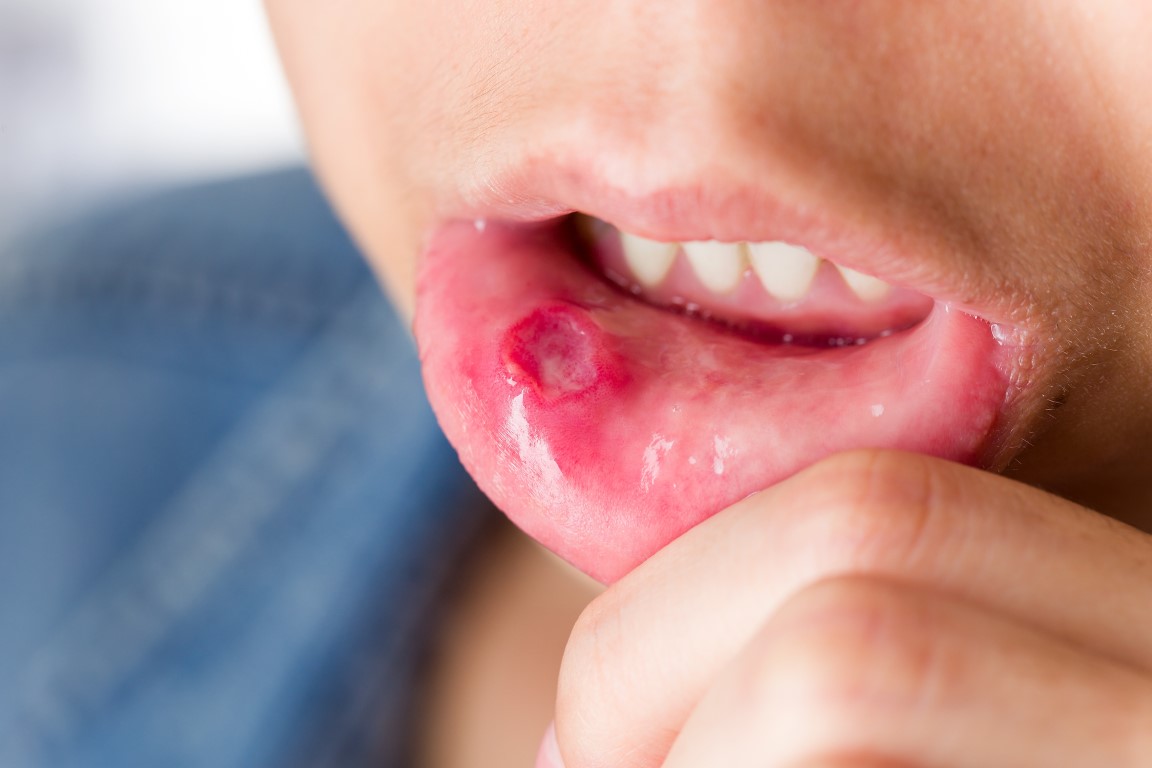When someone has a mouth ulcer, it is the result of erosion or loss of the tissue inside the lining of their mouth. There are a number of reasons for this to happen. In the majority of cases, they are not a health threat and are gone within a ten-day period. Should someone have a mouth ulcer that doesn't clear up in this amount of time, they should have it checked at a Upper Hunt Club Dental Centre in Ottawa.
Ulcer Appearance
Ulcers in a person's mouth are normally oval or round and can be found on the tongue, cheeks or lips. They can be gray, white, yellow or red and be swollen. It is common for one or more ulcer to develop in a person's mouth. They can grow or spread.
Symptoms
There are some common mouth ulcer symptoms, these include:
- Decrease in appetite
- On the lining of the skin in the mouth, there is one or more painful sore
- When someone consumes sour, salty or spicy foods, it irritates the sore.
- A person experiences difficulty when brushing their teeth or chewing because of the tender spots in their mouth
- There is swollen skin around the sores
Canker Sores
These are also known as aphthous ulcers. Canker sores are lesions that can develop on the soft tissue in a person's mouth at the base of their gums. They are not contagious but may be painful and cause difficulties when eating. The different types of canker sores include:
- Minor Canker Sore: Small and usually heal within two weeks.
- Major Canker Sore: Large and are deep into the tissue. Usually, have defined borders and are very painful. They could take as long as six weeks to heal. They may leave scarring.
- Herpetiform Canker Sores: They commonly develop later in life. They are usually in clusters of up to 100 sores and are pinpoint size. In most cases, these sores will heal within two weeks without any scarring.
Causes
There are a number of factors that can be the cause of someone developing mouth ulcers, these include:
- Mouth skin rashes
- The inside of the cheek is bitten because of an accident
- A person's reaction to certain types of medications
- Slipping while brushing causing injury
- Oral thrush infection
- Poor oral hygiene
- Rubbing against teeth that are sharp or misaligned
- Braces or dentures rubbing on parts of the mouth
- Burning resulting from eating hot food or spicy food
- Underlying medical issues
Medical Conditions
There are certain types of medical conditions that can cause a person to develop ulcers in their mouth, such as:
- Weakened immune system
- Viral infections: This includes foot and mouth disease, chickenpox, cold sore virus and more.
- Deficiency of iron or vitamin B12
- Reactive arthritis: This condition will result when a person is experiencing inflammation in various places on their body. It is often the result of a body's reaction to an infection.
- Coeliac disease: This is a digestive condition involving a person having a negative reaction to gluten.
- Crohn's disease: This is a long-term condition. It causes inflammation to develop in the lining of a person's digestive system.
Treatment Options
Recovery from ulcers is not something that will always happen quickly. The risk of complications with mouth sores can be decreased and the symptoms can be managed.
- A topical ointment or mouthwash can be used to treat ulcers. They are usually prescribed by an oral medication specialist or a dentist.
- Sour or spicy food should not be consumed until the ulcer has healed.
- Antiseptic gel can be applied to the ulcers
- A person should regularly rinse their mouth with water that is warm and slightly salted
- When mouthwash is used, it should have chlorhexidine gluconate and be a medicated mouthwash free of alcohol.
- A person’s mouth should be kept clean
- In serious situations, a person may be prescribed an immunosuppressant medication by an oral health professional.
Prevention
In many cases, it may not be possible for mouth ulcers to be prevented. They may be the result of a medical condition, family history and more. There are certain things a person can do to decrease their risk of developing a mouth ulcer.
- Decrease Anxiety and Stress: This is a trigger for many individuals.
- Avoid Certain Types of Foods: This could include tomatoes, spicy foods, strawberries, cheese, almonds, and others.
- Toothpaste: It is important to use toothpaste that does not have sodium lauryl sulfate in it.
- Chewing Gum: This should be avoided
- Toothbrush: Using a soft-bristled toothbrush could decrease irritation to a person's mouth.
Mouth ulcers can cause pain and make it uncomfortable when brushing teeth, drinking or eating. If an individual keeps getting ulcers in their mouth or have one for three weeks or longer, they should consider having it checked out by the Upper Hunt Club Dental Centre in South Ottawa. It could be the sign of a bacterial infection or an underlying medical condition and more. Contact us today to book an appointment if you have been dealing with painful mouth ulcers.













